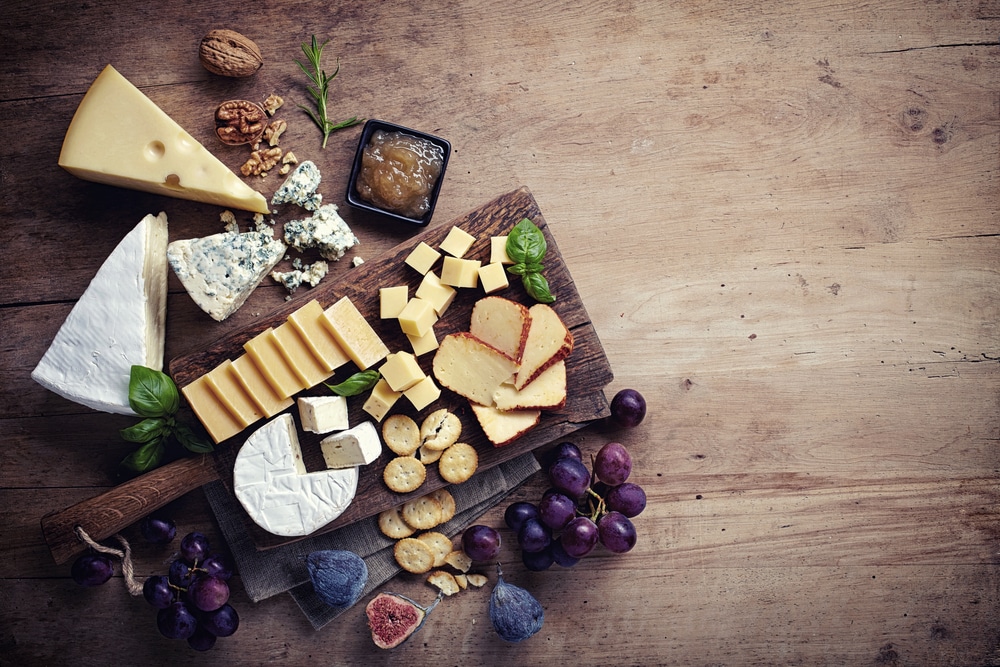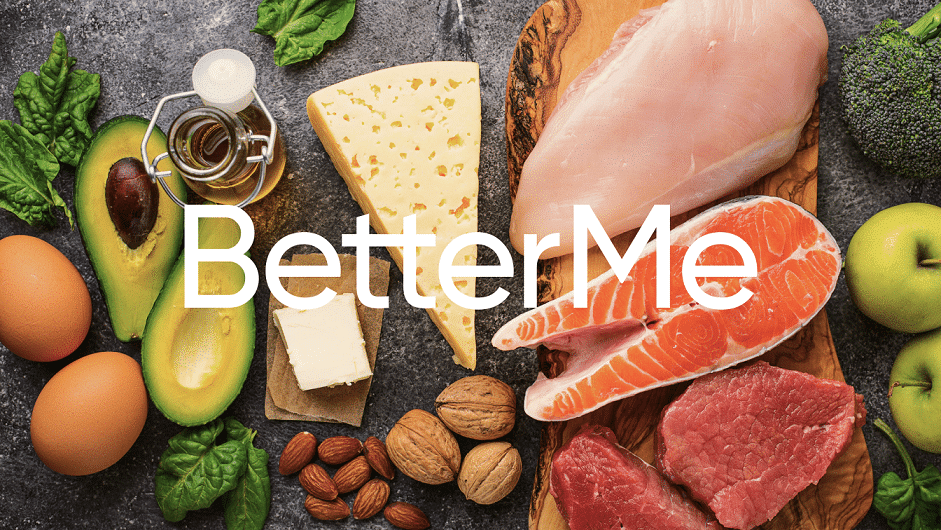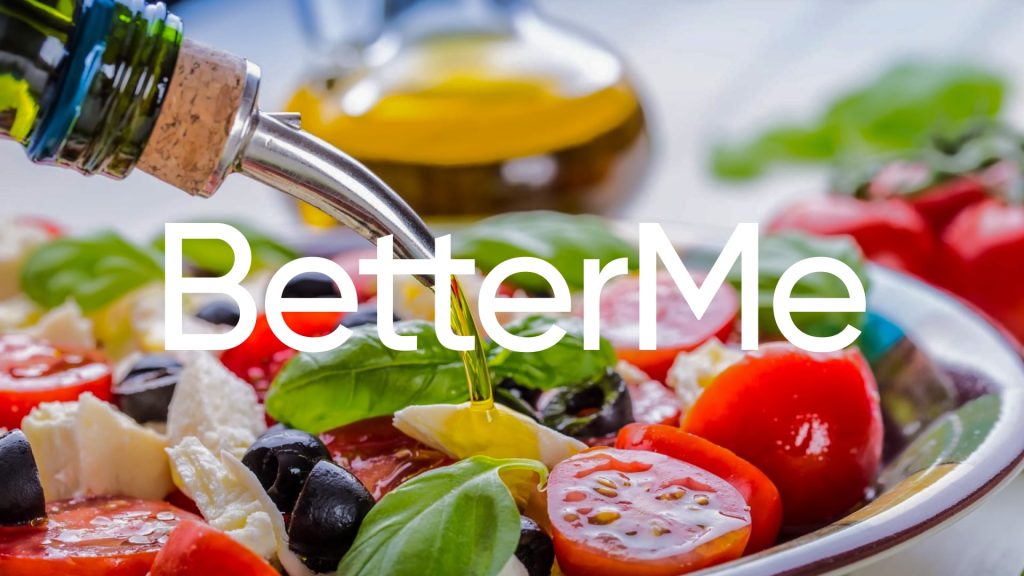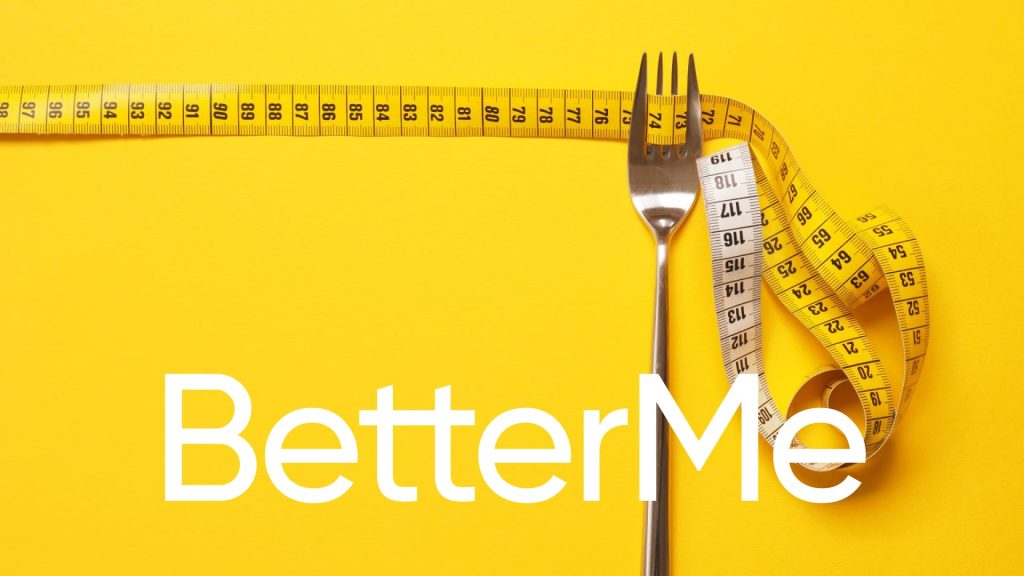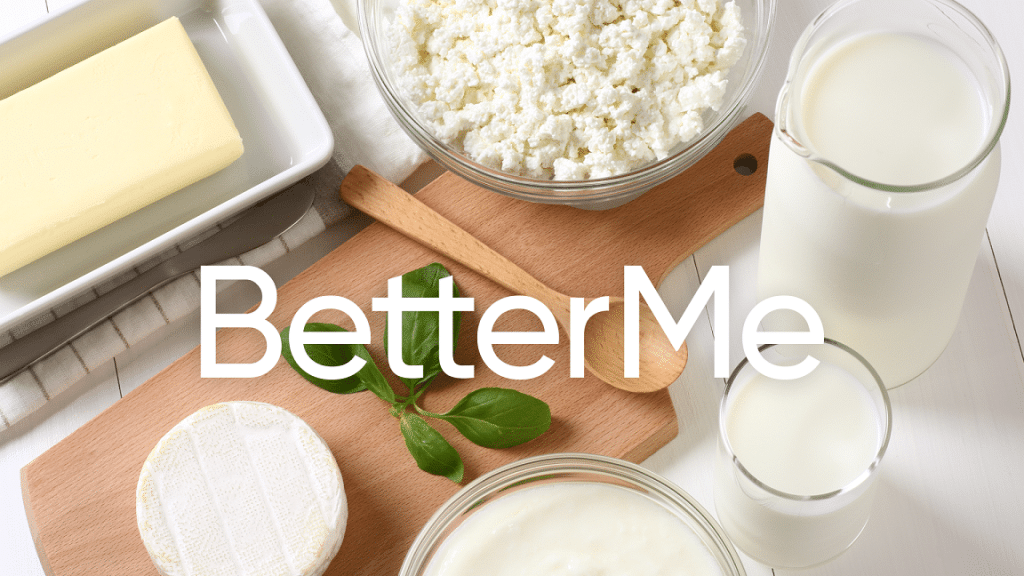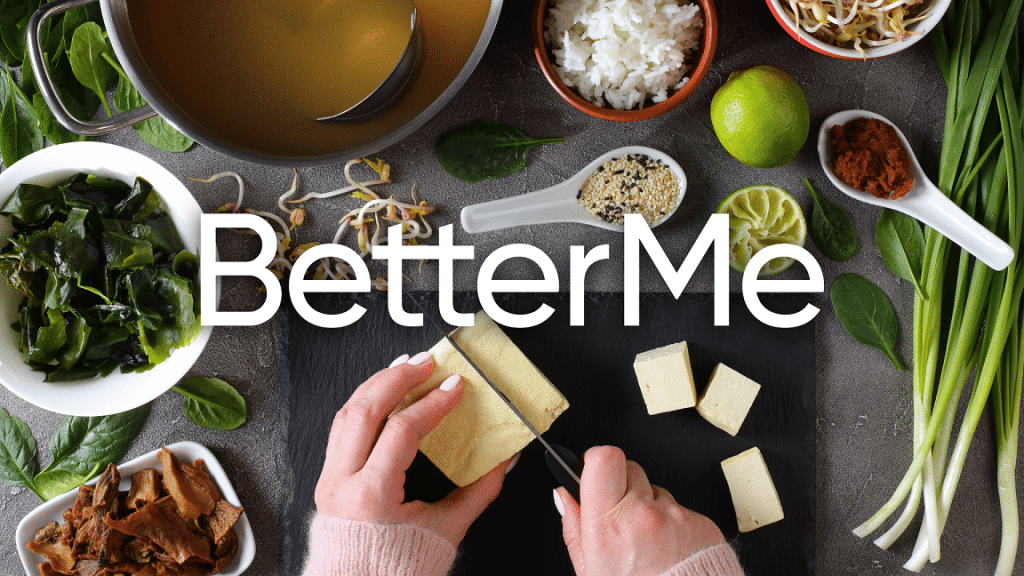Do dairy products make you fat? That’s a question that’s been asked for years. What does science say? The truth is, there are a lot of factors that contribute to weight gain, and it can be hard to pinpoint one specific food or food group as being the main culprit. However, studies have shown that diets high in saturated fats from animal sources such as cheese tend to lead to weight gain. In this article, we will explore how much cheese contributes to weight gain and whether or not cutting back on your consumption could help you lose weight, so read on!
Does Eating Cheese By Itself Make You Fat?
Cheese is high in fat, specifically saturated fat. A diet high in saturated fats can lead to weight gain and obesity, particularly around the midsection (2). However, there are many factors involved, including metabolism, activity level, and genetics. While eating cheese won’t directly make you gain weight on its own, it can contribute to weight gain if not eaten in moderation, as part of a well-balanced diet that includes lots of vegetables, fruits, and whole grains.
Cheese is also high in sodium, which can lead to water retention and bloating (5). While this may not directly cause weight gain, it could make you feel bloated and self-conscious which is never a good feeling.
For people with lactose intolerance, cheese can cause gas, abdominal bloating, and cramping as well as diarrhea. Lactose intolerance has been linked to irritable bowel syndrome, inflammatory bowel disease, ulcerative colitis, skin rashes such as eczema and psoriasis, bronchial asthma, and even hay fever (1).
Does Cutting Back On Cheese Help You Lose Weight?
If you are looking to lose weight, there is good news. Cutting back on the amount of cheese you eat each day can help you lose weight or even prevent it from packing in the first place.
Here are some tips for cutting back on cheese or incorporating it into your diet in a healthy way:
Choose Low-Fat Cheeses
Because most cheese is high in total fat, choosing low-fat varieties may help you reduce your fat intake. Low-fat cheeses include cottage cheese, part-skim mozzarella, and American cheese. Swiss-cheese has 5 grams of saturated fat per 1-ounce serving, cottage cheese (reduced fat) has 1 gram of saturated fat per 1-ounce serving, ricotta (part-skim) has 6 grams of saturated fat per ½ cup serving, while mozzarella (part-skim) has 3 grams saturated fat per 1-ounce serving (14).
Eat Cheese As A Snack In Place Of Processed Ones
Cheese is a great source of protein and calcium, which are both essential nutrients that you need to build muscle after exercise. You can use cheese as a healthier alternative to processed snacks such as greasy chips. Use whole-grain crackers with part-skim mozzarella or Swiss cheeses for dipping in salsa, guacamole, hummus, or fruit preserves.
Snack On Small Amounts Of Cheese Instead Of Large Ones
If you’re looking for a quick snack during the day and craving something cheesy, stick to low-fat varieties like feta and goat cheese, which contain around 6 grams total fat per ounce, whereas cheddar has 9 grams total fat per ounce serving (14). Add some sliced tomatoes topped with goat cheese or feta for a healthy appetizer that’s high in protein and calcium.
Read More: The Mediterranean Diet Pyramid: Use This To Start A Heart-Healthy Way Of Eating
Use Cheese Instead Of Mayonnaise
Adding cheese to sandwiches instead of mayonnaise can reduce your calorie intake significantly. You can also use low-fat or non-fat Greek yogurt instead of cream cheese.
Add Cheese To Veggies Rather Than Putting It On Top of Bread And Pasta
Adding a little bit of shredded cheese while cooking your veggies can help you increase the amount of protein in your meal. Add some feta or goat cheese on top of a salad instead of serving it with bread to cut back on the number of carbs that you take in.
Which Is The Healthiest Cheese?
Some cheeses are healthier than others.
Here are nine of the healthiest types of cheese:
Mozzarella (85 calories per ounce) (14)
Mozzarella is a soft, white cheese with high moisture content. It originated in Italy and is usually made from Italian buffalo or cow’s milk. It is lower in sodium and calories than most other cheeses and is used in traditional Italian dishes like lasagna and pizza.
Blue Cheese (100 calories per ounce) (14)
Blue cheese, or bleu cheese, also called Roquefort, Gorgonzola, Stilton, Danish Blue, and Fourme d’Ambert has a very strong flavor. It is made from cow’s milk that is left to ferment with mold spores until it forms its soft veins of blue-green mold within the cheese. The veining occurs after the cheese is removed from its surrounding paste during aging.
The name comes from the French term “bleu” which means blue because of the color of the mold veins in this kind of cheese. This type of cheese can be crumbled over salads, baked potatoes, and steaks. While often high in sodium, it also provides calcium, phosphorus, vitamin A, and Riboflavin. It’s strong flavor means you don’t need a large portion to pack a punch.
Feta (75 calories per ounce) (14)
Feta is a crumbly cheese made of cow’s milk or sheep’s milk which originated in Greece. It has a sharp flavor with a briny, tangy taste. It was developed over several centuries BC on the plains of Greece near Mesopotamia. Since feta is packaged in brine to preserve freshness, it can be high in sodium. However, it is typically lower in calories than many other cheeses.
Cottage Cheese (81 calories per ounce) (14)
Cottage cheese is a low-fat dairy product that is made from curdled milk drained through a fine cloth to produce solid cakes of pressed curd called “curds”. The curd is then cut into small cubes, which are drained and further pressed. Salt is usually added before packaging. It is commonly eaten as a snack with fruit or vegetables, on top of salads, dips, desserts, or even with pasta dishes for additional protein.
Ricotta Cheese (180 calories) (13)
Ricotta cheese is an Italian cheese that has become very popular in the United States over the last few decades due to its delicate sweet flavor, which makes it perfect for adding to pizzas, lasagna, white sauce pasta, and casseroles without overpowering the other ingredients. It is made from whey – by boiling the whey left, after making other cheeses like mozzarella, until it becomes thick enough to form soft white lumps.
Parmesan (111 calories per ounce) (14)
Parmesan is a hard cheese that is made by pressing together small chunks into larger blocks and then curing these blocks in brine solution or packing it with salt, which helps preserve the cheese for months and years. Many people like to eat it as a snack, although it is often added to pasta, risotto, and salads or mixed with breadcrumbs and used for garlic bread or crumb coating. It has a strong full flavor, which makes it perfect for use on top of pizzas instead of using mozzarella because parmesan can withstand higher heat without turning rubbery, unlike mozzarella cheese would do under such conditions. Because of its strong flavor, only a small amount is usually needed to accent a dish, which means you won’t be adding a ton of calories.
Looking for a way to break the vicious cycle of weight loss and tone up all the jiggly parts? Watch the extra pounds fly off and your muscles firm up with the BetterMe app!
Swiss Cheese (111 calories per ounce) (14)
Swiss cheese is pale yellow or white with holes throughout, which are the result of the addition of an enzyme called “propionic bacteria”. Swiss cheese originated in Switzerland, but it is now made around the world. It has a mild flavor with a sweet, nutty taste that goes well on sandwiches or melted on vegetables or meats.
Cheddar Cheese (115 calories per ounce) (14)
Cheddar cheese is one of the most popular cheeses worldwide and is often used as a staple ingredient in many dishes such as soups, salads, and grilled sandwiches because of its mildly sharp flavor and rich creamy texture when baked. Cheddar is made from cow’s milk by adding rennet to turn it into curd and then remove the liquid or whey until only the solid remains. After the remaining curds are cut into small pieces, they are heated with a little bit of salt to produce a mash which is later pressed together to form a block.
Goat Cheese (75 calories per ounce) (14)
Goat cheese, also known as chevre, chèvre, and Fromage de chèvre has been around for at least 8000 years, although its history is not well documented. It comes in soft, semi-soft, and hard varieties, depending on its age and processing methods. It has a mild flavor that makes it great for cooking and eating like regular cheese, but because of its delicate tangy flavor, it goes well with fruit, vegetable salads, and fresh bread.
Health Benefits Of Cheese
Dairy products are one of the best dietary sources of calcium and other nutrients.
Here are eight ways in which cheese might be healthy:
Bone Health
Calcium is essential for healthy bones. To maintain normal bone structure and promote the formation of new bone, everyone needs an adequate intake of calcium through diet or supplements (12). The recommended daily amount (RDA) is approximately 1000 milligrams per day for young adults and men and 1200 milligrams per day for women and older adults (4).
Dental Health
The high-sodium content in cheese may increase water retention and bloat, but it also increases saliva production. Saliva helps wash away food particles from teeth which reduces cavities and gum disease risks. Furthermore, the chewing required while eating cheese stimulates saliva flow even more, which can be beneficial to dental health (6). Plus, teeth are bones, so the calcium in cheese is beneficial for them, too.
Blood Pressure
If you suffer from high blood pressure, dairy products are your best friend. A study found that people who have at least one serving of low-fat dairy products daily have a reduced risk of developing hypertension compared to those who consume little or no dairy products (7).
Read More: Pescatarian Vs Vegetarian: Which Diet Is Best For You?
Healthy Blood Vessels
Furthermore, studies have shown that a regular intake of low-fat dairy products can help reduce the risk for heart disease or stroke later in life, which is why it is included in the dietary approaches to stop hypertension (DASH) diet. Researchers explain that various components in dairy products may help improve blood cholesterol and enhance the function of endothelial cells, which line deep veins and arteries, thus enabling them to dilate properly. In this way, increased consumption of low-fat cheese might promote optimal cardiovascular health (8).
Gut Microbiota
There may be an intriguing connection between cheese intake and gut microbiota composition. The gut microbiome is a community of microorganisms that live inside the digestive tract, and it contains about 100 trillion bacteria, fungi, viruses, and microbes. As a fermented food, cheese may provide probiotics that improve bowel health and boost immunity (11).
Omega-3 Fatty Acids
The milk fat contained in cheese is rich in monounsaturated fatty acids (MUFA) and saturated fatty acids (SFA). MUFAs are especially abundant in specific cheeses like goat cheese, blue cheese, and brie, which contain up to 10 grams per 1-ounce serving. Furthermore, some evidence indicates that regularly consuming low-fat dairy products can significantly reduce the risk for heart disease or stroke later in life (10).
If you tend to let yourself off the hook, raise the white flag when things get tougher than you expected, send yourself on an unconscious binge-eating trip – BetterMe app is here to help you leave all of these sabotaging habits in the past!
Cell Health
Vitamin K is an essential nutrient required by every cell in the human body for good health. Cheese is a great natural food source of vitamin K, and it can be a very helpful supplement when consumed through a balanced diet. The recommended daily intake for adults is 90 micrograms per day (15).
The Bottom Line
Cheese does not directly cause you to gain or lose weight, but overeating any food can contribute to weight gain when combined with an unhealthy lifestyle that is low in exercise and overall activity. Cutting back on your cheese consumption, especially those with high levels of saturated fats such as cream cheese and cheddar cheese, may help you lose weight.
DISCLAIMER:
This article is intended for general informational purposes only and does not address individual circumstances. It is not a substitute for professional advice or help and should not be relied on to make decisions of any kind. Any action you take upon the information presented in this article is strictly at your own risk and responsibility!
SOURCES:
- [Lactose intolerance and consumption of milk and milk products] (1997, pubmed.gov)
- A high-saturated fat-rich diet is more obsenogenic than diets with lower saturated fat content (2010, nih.gov)
- Calcium (n.d., nih.gov)
- Cheese, Nutrition and Health (2016, euromilk.org)
- Cheese (n.d., harvard.edu)
- Cheese may prevent cavities (2013, sciencedaily.com)
- Dairy Consumption, Blood Pressure, and Risk of Hypertension: An Evidence-Based Review of Recent Literature (2012, nih.gov)
- Dairy Consumption and Stroke Risk (2013, nih.gov)
- Dairy intake is associated with brain glutathione concentration in older adults (2015, oup.com)
- High omega-3 fatty acid content in alpine cheese: the basis for an alpine paradox (2004, nih.gov)
- Metabolomics Investigation To Shed Light on Cheese as a Possible Piece in The French Paradox Puzzle (2015, acs.org)
- Parmigiano Reggiano cheese and bone health (2011, nih.gov)
- Ricotta Cheese (2019, usda.gov)
- Selecting Cheese for Health (2018, psu.edu)
- The health benefits of vitamin K (2015, nih.gov)
